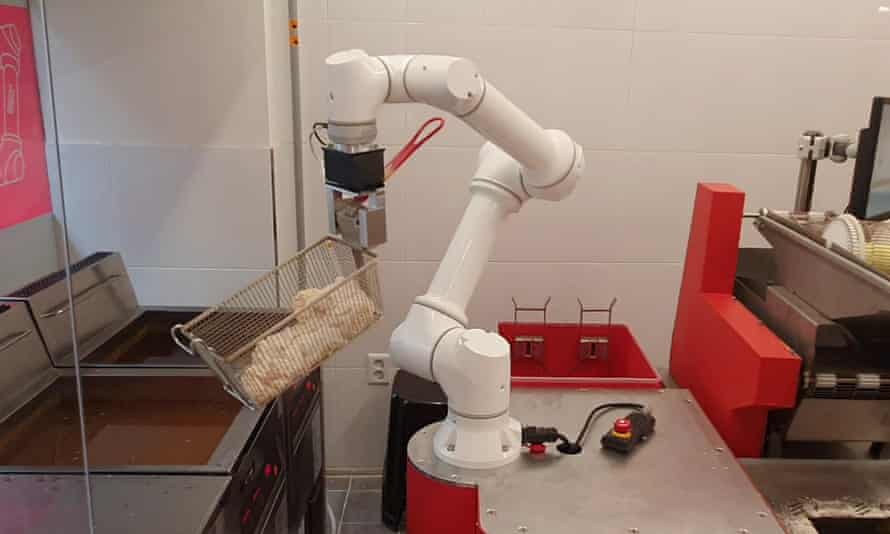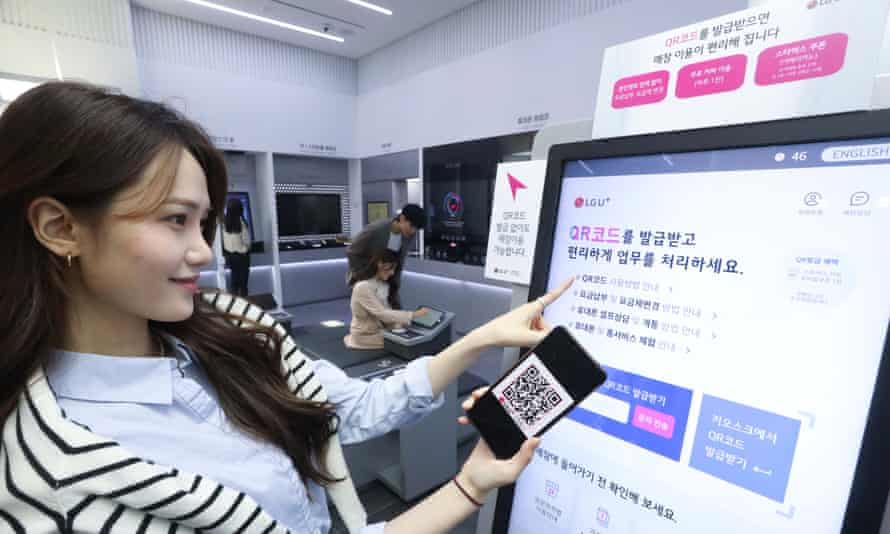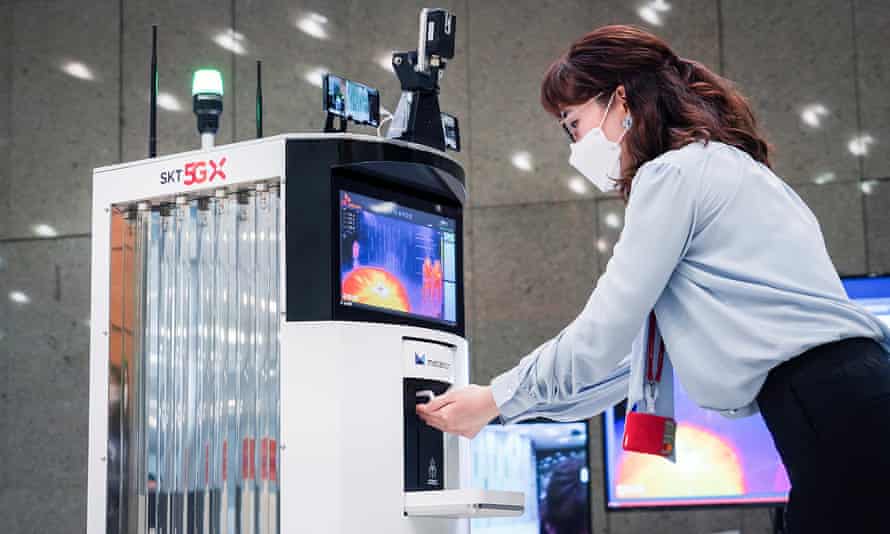For Seoul-based graduate Lee Su-bin, the transition to a new lifestyle during the pandemic was no big deal.
“At the university library, I would reserve my books online, which would then be sanitised in a book steriliser before being delivered to a locker for pick up,” the 25-year-old says.
“Untact has made many aspects of life so convenient.”
Introduced in 2020, “Untact” is a South Korean government policy that aims to spur economic growth by removing layers of human interaction from society. It gathered pace during the pandemic and is expanding rapidly across sectors from healthcare, to business and entertainment.
The push to create contactless services is designed increase productivity and cut bureaucracy but has also fuelled concerns over the potential social consequences.
Choi Jong-ryul, a sociology professor at Keimyung University, says while there are advantages to developing an untact society, it also threatens social solidarity and may end up isolating individuals.
“If more people lose the ‘feeling of contact’ due to lack of face-to-face interaction, society will encounter a fundamental crisis,” Choi says.
From robots to the metaverse
In everyday life, small changes brought about by untact are becoming increasingly noticeable.
Robots brew coffee and bring beverages to tables in cafes. A robotic arm batters fries and chicken to perfection. At Yongin Severance Hospital, Keemi – a 5G-powered disinfection robot – sprays hand sanitiser, checks body temperature, polices social distancing, and even tells people off for not wearing masks.

Unmanned or hybrid shops are flourishing. Mobile carrier LG Uplus recently opened several untact phone shops, where customers can compare models, sign contracts and receive the latest smartphones without ever having to deal with a real person.
Civil services too are getting untact facelifts. Seoul City plans to build a “metaverse” – a virtual space where users can interact with digital representations of people and objects – and avatars of public officials will resolve complaints. Several local governments have launched AI call bots to monitor the health of those self-isolating. For Covid-19 patients receiving home treatment, a government app also monitors health and gives video access to a doctor.
The world of K-pop has also stepped into the metaverse. Fans create avatars where they can “meet” their favourites like Blackpink in a virtual space and receive virtual autographs.
Economic boost
Untact in South Korea is more than a buzzword: it represents a potential economic engine for the country.
“Untact companies have shown greater growth effects than face-to-face companies in attracting investment and creating jobs,” South Korea’s small business and startups minister Kwon Chil-seung told the Guardian, noting that 12 out of 15 Korean unicorn companies – private firms valued at US$1bn (£750m) or more – use non-face-to-face methods in their primary business.
“South Korea has a very strong (communications) infrastructure in the country and many industries based on that infrastructure,” he says, adding that untact is part of a growing global trend that has accelerated in light of the pandemic.
His ministry is so serious about the policy that it is pumping 9tn won ($7.6bn) into an “untact growth fund” to find and support 1,200 untact startups by 2025.
Many have welcomed the shift. The Seoul Institute found that 80% of residents in the capital who had engaged in non-face-to-face activities said they would continue doing so after the pandemic subsided.

Sociologist Choi Jong-ryul says untact provided some advantages – including allowing anonymity through electronic devices, freeing people from the pressures of formality and reducing emotional labour associated with the service industry. The latter problem is particularly acute in South Korea, where customer service is highly valued, hierarchical structures persist, and abusive behaviour by those in positions of power, known as ‘gapjil’, is commonplace.
But concerns over feelings of loneliness and social fragmentation remain.
The country recently announced plans to invest almost 30bn won ($25.4m) to research a digital treatment platform for depression, a project kickstarted as a result of not having human contact due to the pandemic.
Loneliness among elderly people – an existing problem in South Korea only exacerbated by the pandemic – is also receiving the untact treatment.
SK Telecom’s AI Care service is among several being deployed across the country that allows seniors living alone to interact with an AI speaker by asking it to play music, have a simple conversation, perform quizzes, or even call for help in an emergency. The system has reportedly reduced loneliness among users, and even been credited with saving lives by the country’s president.
“These technologies are not replacing humans. It’s about coexisting with humans,” says SK Telecom spokesperson Irene Kim.

‘Social solidarity’
Lee Su-bin says while she was comfortable using untact technologies such as unmanned shops, she had concern for others who may “have trouble using them”.
“I had to help a grandfather at an automatic kiosk the other day to order his meal,” she says.
Kwon acknowledges challenges exist regarding those who might be left behind by the sudden digital transformation brought about by untact, and that his government needs to implement policies and regulations to “strike a balance.”
The long-term impact of untact on society remains unclear, but Prof Choi believes an untact future is inevitable to increase economic efficiency.
“The key is understanding the social and ethical implications of an untact society and finding ways to maintain social solidarity.”
Stay connected with us on social media platform for instant update click here to join our Twitter, & Facebook
We are now on Telegram. Click here to join our channel (@TechiUpdate) and stay updated with the latest Technology headlines.
For all the latest Covid-19 News Click Here
